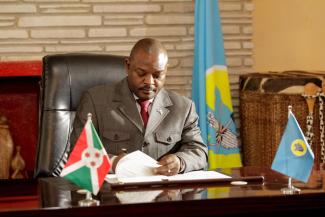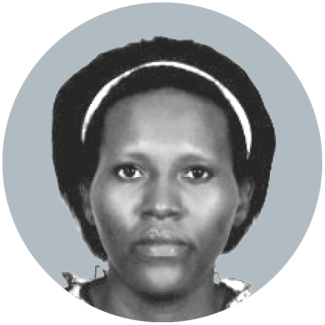Governance
Burundi is moving its capital

Interior Minister Pascal Barandagiye has given multiple reasons for moving the capital. First, he claimed that the move represents the will of the people, and that the president announced his intentions a long time ago. Second, the move would bring government agencies closer to the people: Gitega is located in the centre of the country, while Bujumbura lies far to the west along the coast of Lake Tanganjika. From this geographical position, Barandagiye argues, Bujumbura can no longer fulfil all of its important tasks. For instance, it is difficult to provide security because the army is stationed close to the lake. The ultimate goal, according to Barandagiye, is to deconcentrate Bujumbura. He also pointed out that the constitution permits the capital to be moved to “any other location in the republic” and also allows the political and economic capital to be separated.
In the National Assembly, which had to approve the bill, numerous representatives expressed the reservation that Gitega, a small city with about 30,000 residents, was not suited to become the capital. It had already been the capital until Burundi’s independence in 1962 and was the traditional seat of the monarchy. Critics also cited a lack of infrastructure and a shortage of water and called attention to what the move would mean for the overstretched state budget and families separated by the approximately 100-kilometre-distance between Bujumbura and Gitega. Some also questioned why such a project was necessary before the upcoming elections in 2020. Nevertheless, representatives – including the opposition – overwhelmingly voted for the measure. There was only one “no” vote.
The senate has already moved, and the transfer of five ministries, multiple government commissions and the constitutional court is in the works. The move is scheduled to last a total of three years. Pascal Nyabenda, the president of the National Assembly, has warned against rushing and announced that the lower chamber had formed a committee to review the feasibility of the move. Decisions will be made on that basis, he says.
A commission was also formed and a master plan drafted to address the lack of offices, roads, restaurants, hotels and other infrastructure. A delegation from the African Development Bank visited Burundi in February and promised financial support for the project.
Critics believe that the true motive for the move is the fact that Nkurunziza lacks support in Bujumbura, which is considered an opposition stronghold, and therefore does not feel safe there. The president had already announced his intention to move the capital years ago. Since the attempted coup in May of 2015 he has not appeared at large public events in Bujumbura, though he did participate in the Unity Day festivities in Gitega Province on 5 February of this year. That was also where he launched the campaign for the controversial constitutional referendum in June of 2018 (see my article in E+Z/D+C e-Paper 2018/07, Debate) and where he ultimately signed the constitution and officially declared that he would not run in the 2020 elections. Some in the opposition go so far as to view the movement of the capital to the seat of the former kingdom as a symbolic step towards a return to monarchy.
Mireille Kanyange is a journalist and reporter for Radio Isanganiro in Burundi.
mika.kanyange@gmail.com








